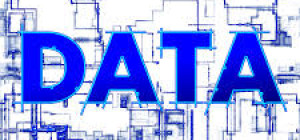Data loss and security breach are major concerns for IT companies. The modern data-driven world has certainly demanded better ways to secure the data.
Imagine your competitors utilizing your client’s details to fuel up their business requirements? Seems annoying, isn’t it? Data is perhaps the most valuable thing on your network or computers that require continuous protection from unauthorized access.
Some data on your system is extremely crucial, not only do you not wish to lose it; you can’t even afford a sneak peek.
Here are some simple ways that can lend a hand in enhancing the security of your susceptible networks and interlinked systems.
Consider Encryption on Susceptible Networks
According to the security experts, there are more chances of data access while the information is in transit over the network. Unauthorized people usually attack the network layer to get access to the company’s sensitive information.
Data encryption is a reliable way of altering the format of the data into some different format, which can only be decrypted by using special techniques at the destination.
Numerous IT businesses make the use of several algorithms to encrypt the data. The finest way is to use SSL (Secure Socket Layer) encryption, which is perhaps the best encrypting technique. Moreover, a reliable website with an SSL encryption attracts potential clients.
Separate the Company’s Crucial Data from the Accessible data
One of the common things that people usually ignore is the accessibility of the crucial data. Companies keep the confidential data as well as the data that is required by the employees on the same system, which is one of the biggest loopholes in the data security.
It is always better to plan things according to the numerous security aspects that don’t leave a chance of security contravene. You should prefer the use of cloud storage for saving the business data securely. The cloud storage is the reliable and safe mode of saving your company’s crucial data, which can also be accessed from anywhere around the world.
Apart from this, you must never keep the sensitive data and information over the shared network, which can be quite risky.
Wipeout Unnecessary Data
Many companies have a bunch of systems that are flooded with unnecessary data that they no longer require. Keeping crucial data on your company’s computer could be the reason for your data leak. One just can’t trust the employees, and hence destroying your company’s old data is necessarily important.
For people who prefer storing their data on hard drives, they too can be a victim of data escape. You can consider hard drive destruction for permanent deletion of your business data, which you think is not required for future references.
One needs to emphasize on securing their sensitive networks that interlink different computers within the organization. You can ensure adequate security by considering a third-party firewall.
Monitor the Updates
Regular updating of your system should be on the top of the list. An updated system has lesser chances of being attacked from various threats. According to the cybersecurity experts, the primary target of malware and viruses are the systems using outdated versions of software programs and operating system.
The outmoded software could be the worst thing that can severely lead to data loss. As businessmen, you need to update the entire systems in your office without compromising on the privacy of your data.
It is recommended that you must always keep “Automatic Updates” On to ensure that every available update is automatically installed on your system.
Never Forget to Create a Backup
Creating a backup of your personal and business data is always rewarding in the long run. You need not worry regarding data loss as you can eventually retrieve data from a restore point.
Operating systems like Windows, offer an option to create a restore point that can eventually help you in effortlessly utilizing your data as well as your settings in case of any crisis. Moreover, data over the cloud or portable hard drive is considered to be the safest.
There are potential threats that can eventually lead to sudden loss of data from your system. The data may or may not be recovered in some scenarios; it is strongly recommended that one should never ignore the importance of a strong backup of data.
Install a Firewall
The Internet is the primary source of phishing attacks and acts as a transit for malware and viruses. One should always prefer installing a third-party firewall that shields their system against these vulnerabilities.
You can choose an anti-virus program that is capable of obstructing unauthorized access to your system without compromising the overall performance of the system.
Conclusion
The advancement of technology has significantly increased the need for reliable security, especially for IT companies dealing with massive data. This guide helps in securing your system and data from various threats that may result in a security violate.










